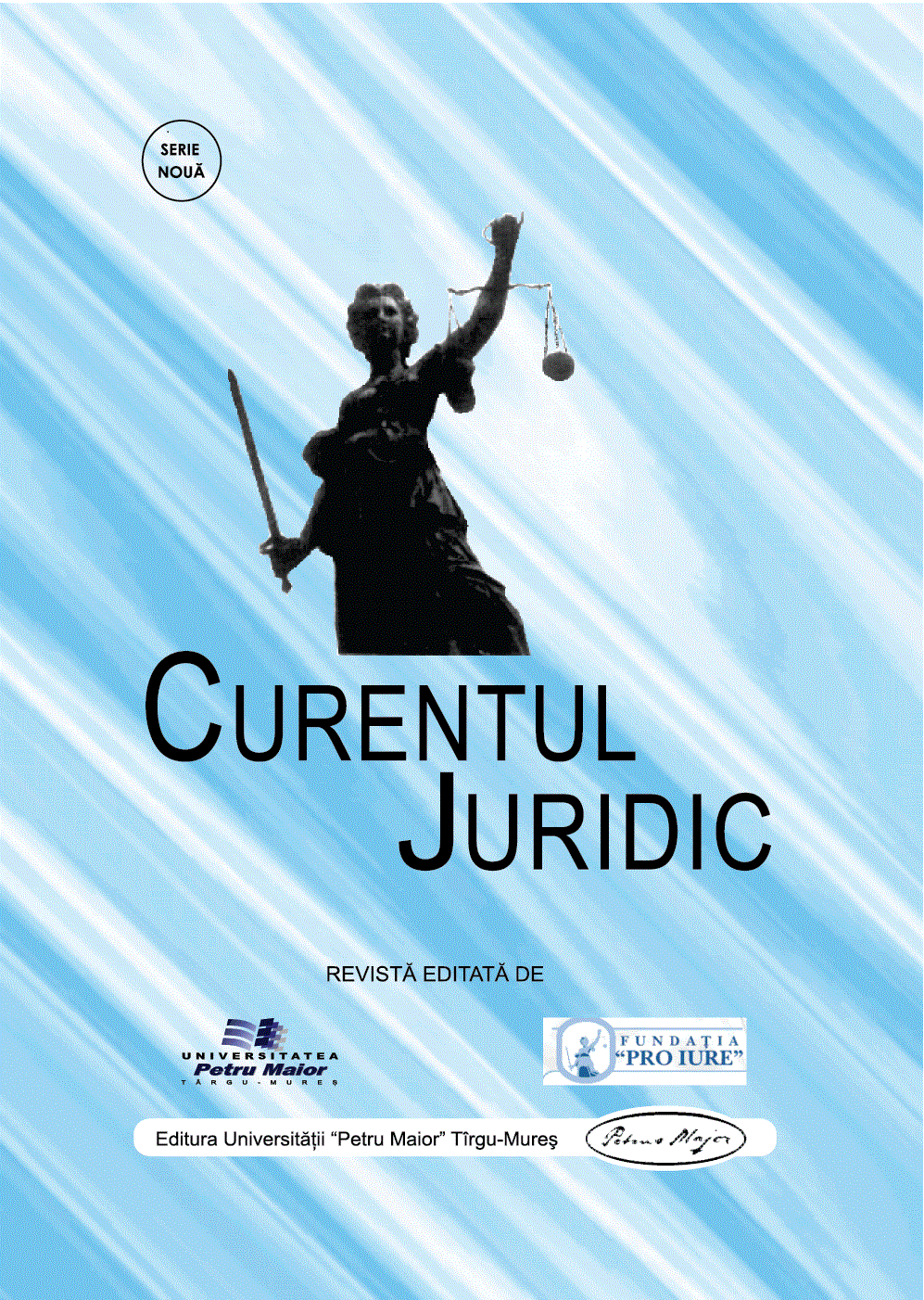QUOD ERAT DEMONSTRANDUM DE LA RESPONSABILITE ET DE L’ENGAGEMENT JURIDIQUE DES MAGISTRATS
QUOD ERAT DEMONSTRANDUM ABOUT THE RESPONSIBILITY AND LEGAL LIABILITY OF THE MAGISTRATES
Author(s): Lucian ChiriacSubject(s): Law, Constitution, Jurisprudence
Published by: Editura Universităţii Petru Maior
Keywords: justice; legal liability; magistrate; malpractice.
Summary/Abstract: In a series of topics related in terms of their subject , I rest in this article on the institution of the legal liability in conjunction with the statute of magistrates. Starting from the general to the particular, I will try to establish the forms and conditions where the magistrates’ liability intervene, embedded within the general framework of responsibilities undertaken once with their access to the profession. Of course, beyond the affiliation of the Prosecutor rather to the legal status of the civil servants, beyond the liability only within the confines of “bad faith” or of a “serious negligence”, naturally, the magistrate ought to be liable disciplinary, civilly, criminally for the acts performed in the exercise of his profession like any other person, according to his conduct and his own trainingThe European Court of Human Rights has established that, what is important in a democratic society is precisely the trust that the courts must inspire to its audience. Certainly that not any doubt in terms of the lack of impartiality and independence of a judge or prosecutor may be justified as an objective. However, it is also true that the magistrate as a person and professional is not infallible in his judgment when he “utters the law”, especially that he “applies” and does not “create” law. Thus, many times, one can say that the judge was wrong, so it was an error, but a more serious case is when he “mistakes” .with an intent, situation in which, naturally, like in any other profession, liability must intervene, liability that is based on the constitutional provisions (disciplinary liability) but also on the special laws. In this context, no doubt that this responsibility must be accompanied by an adequate system of safeguards to protect the impartiality and independence of the judge in order to prevent the legal liability institution from turning into a means of abuse or pressure.Justice for a democratic society must reflect a state of calmness, balance and normality like any other public service that should offer every citizen the comfort needed to support its social vocation, otherwise, like Cicero, we can say “summum iuris, summa iniuria
Journal: Curentul Juridic
- Issue Year: 65/2016
- Issue No: 2
- Page Range: 63-74
- Page Count: 12
- Language: French

